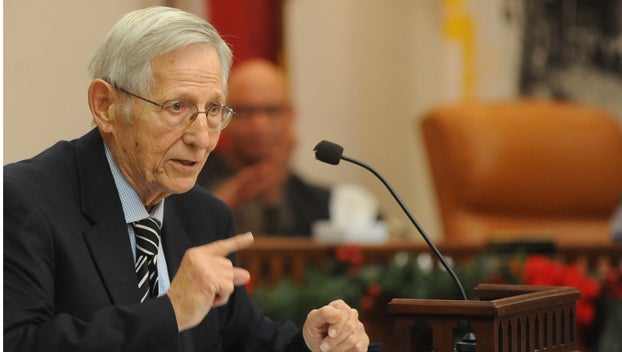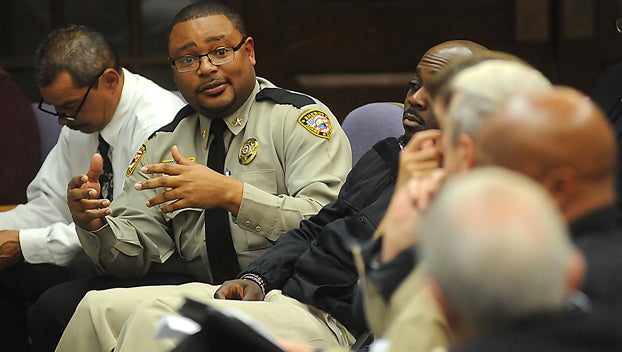Sen. Dearing discusses new legislation at forum on state dogfighting laws
Published 12:04 am Tuesday, December 19, 2017
NATCHEZ — Local leaders and citizens had the opportunity to give input Monday night on an upcoming bill to strengthen dogfighting laws in Mississippi.
Sen. Robert Dearing, D-Natchez, came to Monday night’s town hall meeting armed with 50 copies of his proposed bill, which he hopes to present in the 2018 Mississippi legislative session in January.
He ran out of copies before the meeting ever began.
Dearing apologized for not having enough copies for everyone, but said he was elated that the turnout had been more than his expectations.
Dearing’s bill, which would fine dogfighters with a $1,000 fine per-dog and a one-year prison sentence per-dog up to 25 years, also heightens the penalties for attendees of dogfights to a minimum $1,000 fine and up to two years’ imprisonment and includes provisions for an individual convicted of dogfighting to pay restitution for the care and housing of the animals in the time between confiscation and conviction.
Dearing said his bill has already garnered bi-partisan support among Mississippi senators.
Senators Dean Kirby, R-Pearl, Juan Barnett, D-Heidelberg, and Billy Hudson, R-Hattiesburg, have already requested to co-author the bill, Dearing said.
“It’s a non-partisan bill already,” Dearing said. “Hudson said he wanted this bill to be the strongest bill in the country. He didn’t want anything left unturned. He didn’t want the people who promote dogfighting to think that Mississippi was the place to come anymore.”
Dearing said some senators have declined to co-author the bill because of the 25-year upper cap on imprisonment for offenders.
He said some senators believe that to be too high a number.
“I told them, ‘There are folks back home who would like it to be 56 years’ imprisonment,” Dearing said. “Comparing our bill with other states, we’re pretty much in line with the prison term.”
The inclusion of a restitution for the healthcare and housing for the animals, Dearing said, was in part inspired by the daunting cost to keep a great number of animals in the duration between confiscation and conviction.
“In talking with Chief (Matt) Barnett of Wiggins, we wanted to make sure, Sheriff Patten, that the person, if convicted, would have to come up with the cost of keeping the animals,” Dearing said. “That is in the bill. If he’s convicted, he’s going to have to come up with he cost.”
After giving an overview of the bill, Dearing opened the floor to attendees for input.
Natchez Alderman Dan Dillard asked where the money collected from fines goes upon collection.
“Does all this money go to the state or can some of this money be returned to the county?” Dillard said. “My intention was to get these resources back to the counties where the incidents happen to help. Our police officers and humane society are working on these things and I don’t want those resources to go into a black hole.”
Dearing said he and his attorney would add language determining where the funds would go.
Natchez-Adams County Humane Society board member Robert Green brought up the provision that animals that are found in a condition beyond recovery, or animals that will not survive until conviction can only be euthanized after the court approves. A provision in the bill says the court must make a ruling in seven days.
Green said he believed these days would only prolong undue suffering of animals.
Another Mississippi animal cruelty law, however, allows for the immediate euthanizing of an animal by a licensed veterinarian, a law enforcement officer or an employee of an animal welfare department, if three “respectable” citizens agree that the animal is past recovery.
Dillard and other members of the audience suggested that similar language be added to Dearing’s bill.
Dearing also provided ways citizens and local officials could help get the legislation passed.
Dearing said the traditional route would be for citizens to contact their local representatives.
“But that’s me,” Dearing said. “You don’t need to call me — I know. … What you folks can do: Call folks all over the state and ask them to contact their local legislature.”
Dearing said if enough people across the state contact their local representatives and Lt. Gov. Tate Reeves office, legislators will know the bill has public support.









